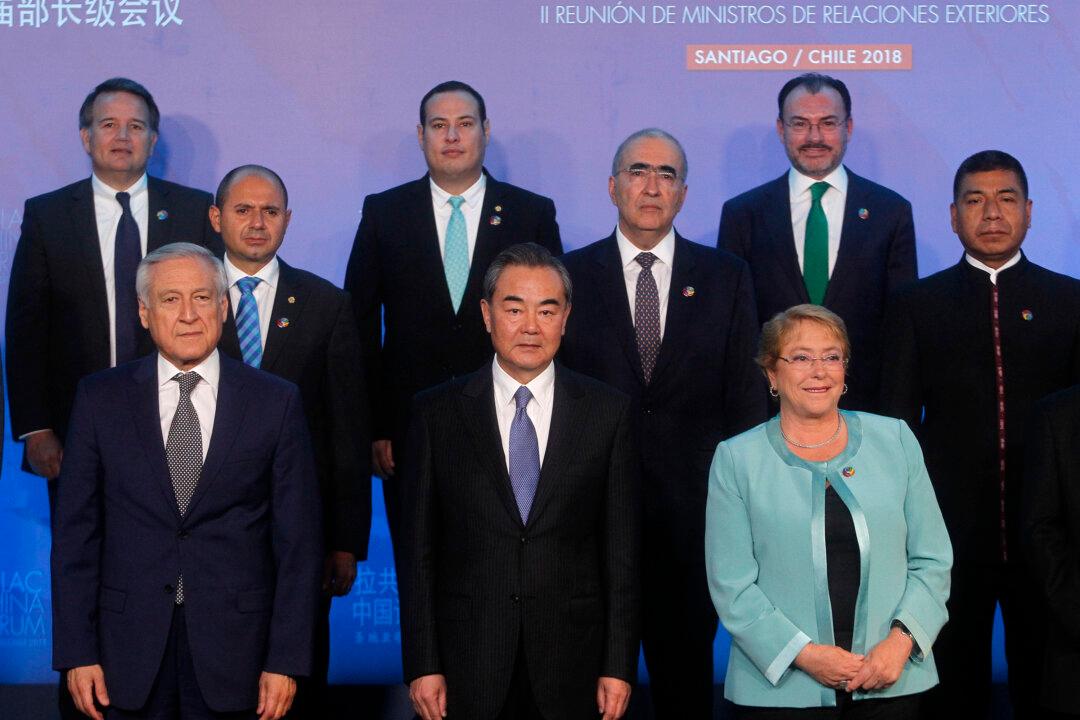China’s communist regime is lending and investing heavily throughout Latin America, and not for charity. Slowly but surely, the strategy is eating away at U.S. foreign-policy dominance in the region.
Foreign investment from the People’s Republic of China is never an act of mere capitalist enterprise or altruism. Rather, the totalitarian regime is picking up where totalitarian Cuba left off and is expanding its sphere of influence via the underbelly of vulnerable, poor, and often unsuspecting nations.





